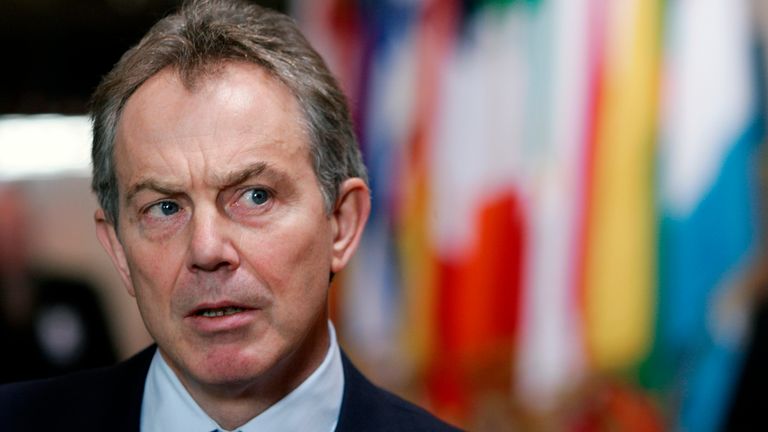Denial of alleged coup attempt and ex-PM’s arms deal bid revealed in declassified documents | UK News
Details of an alleged government coup attempt and a prime minister’s desperate bid for an arms deal have been revealed in a slew of freshly declassified documents.
The secretive records have been released for the first time by the National Archives in Kew.
Among them is a letter surrounding a reported plot to overthrow Harold Wilson’s Labour government in 1968.
The story had enough weight to be recreated for Netflix royal drama The Crown, but correspondence from one of those accused years later described it as “nonsense” with “no foundation in fact”.
Those were the words of publishing guru Cecil King in a 1981 note to Whitehall mandarin Sir Robert Armstrong, as he dismissed claims he had conspired with Lord Mountbatten – the Duke of Edinburgh’s uncle – and Lord Cudlipp.
Mr King, chairman of the International Publishing Corporation (IPC) which counted the Daily Mirror among its titles, accused Mr Wilson of feeding the coup allegation to the press years after he was legitimately ousted by Ted Heath’s Conservatives in 1970.
The alleged coup was reported in The Times newspaper, prompting the then prime minister Margaret Thatcher to address the claims in parliament.
Decades later, it formed part of season three of The Crown.
An embittered Mr King suspected that the accusation played a part in his removal from the IPC.
“Unlike most newspaper stories this one had no foundation in fact,” he said in his letter.
Composer loved by royals ‘sought help with illegal drug supply’
Also revealed is how a revered British composer beloved by the Royal Family secretly sought state help to supply him with illegal quantities of controlled drugs.
Sir William Walton, whose famous composition Crown Imperial was used in the Queen’s Coronation in 1953 and the Platinum Jubilee celebrations this year, was said to be “very dependent” on Ritalin, commonly used to treat ADHD.
Records show his wife, Lady Susana Walton, asked a police inspector in 1982 to help send a year’s supply to his home on the island of Ischia, near Naples, in Italy.
Sending such high volumes of the substance abroad was illegal, but his wife asked anyway because – the records suggest – she “rather lives with her head in the clouds”.
UK knew of French president’s secret health woes
Another revelation released by the National Archives is that the UK government knew the extent of ailing French president Francois Mitterrand’s ill-health a decade before his terminal prognosis was made public.
Diplomat Sir Reginald Hibber filled in Whitehall colleagues in December 1981 with “talk about the President’s health which seemed to me to carry a certain amount of conviction”.
Sir Reginald suggested Mr Mitterrand may have cancer, less than a year after he had taken office.
That proved to be correct, as Mr Mitterrand died in 1996 with prostate cancer – something he successfully concealed from the French public throughout his presidency – which ended in 1995 – and until his death.
Blair begged Kuwait for arms deal
According to other declassified records, Tony Blair begged Kuwait to buy UK artillery as payback for supporting the Middle Eastern nation during the Gulf War.
He repeatedly lobbied Crown Prince Sheikh Sa’ad between 1998 and 1999, even calling in on him during a brief stopover on a flight home from South Africa to press the point.
Internal briefing notes show the government believed it was “due the award of a significant defence equipment contract in recognition of its defence of Kuwait” following the invasion of Saddam Hussein’s Iraqi forces in 1990.
The efforts did not immediately reap rewards, as Kuwait announced its intention to buy US artillery instead.

